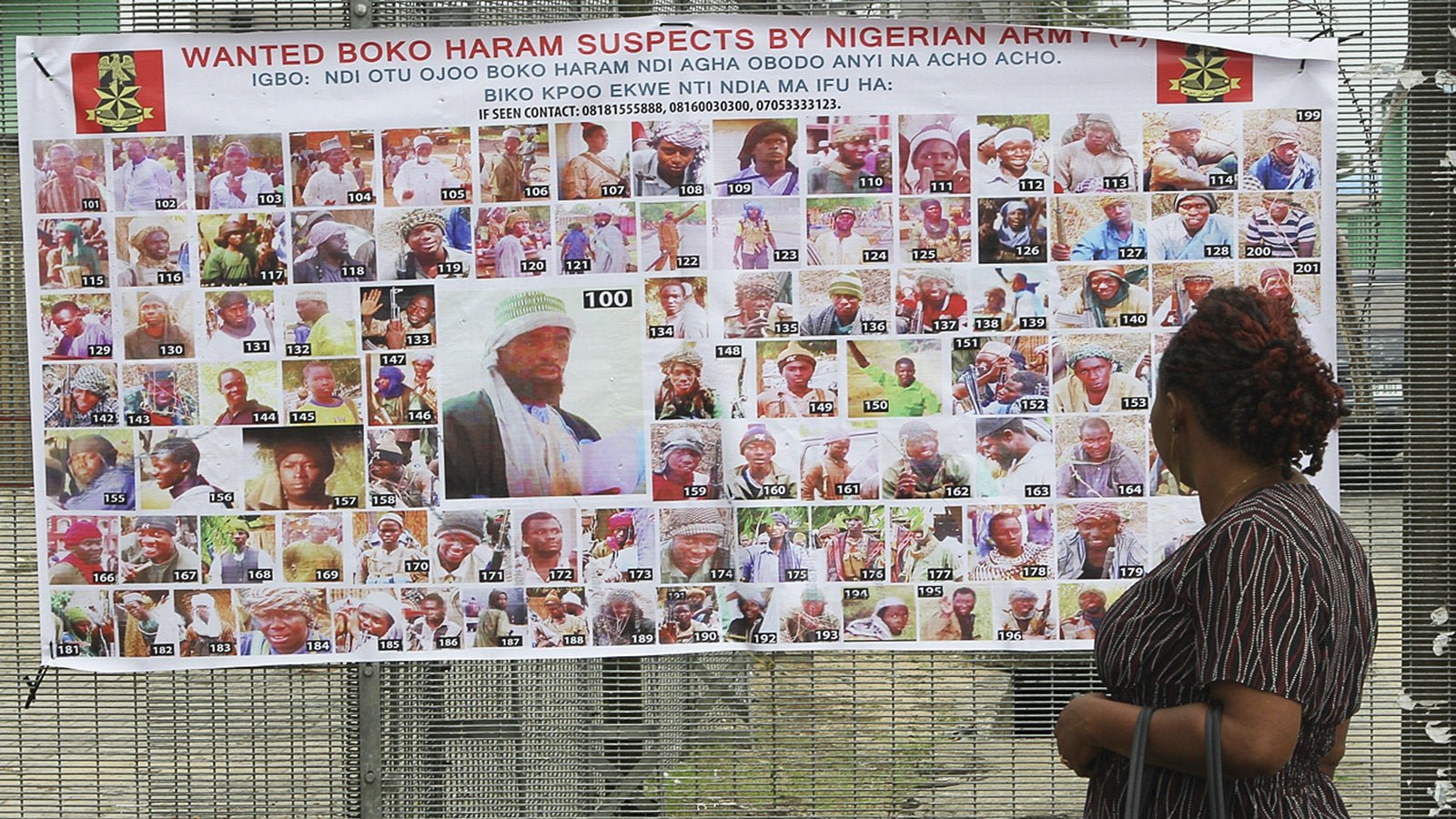Nigeria’s army is going after the journalist who got the kidnapped Chibok schoolgirls’ video
Following the release of a new video by Boko Haram showing some of the schoolgirls kidnapped from Chibok, in northeast Nigeria, two years ago, the country’s military is going after the journalist who first received the footage.


Following the release of a new video by Boko Haram showing some of the schoolgirls kidnapped from Chibok, in northeast Nigeria, two years ago, the country’s military is going after the journalist who first received the footage.
The military has declared freelance journalist Ahmad Salkida wanted for purported links to the group. Also declared wanted were Ahmed Bolori, co-ordinator of a local NGO, and Aisha Wakil, who was involved in an ill-fated negotiation attempt with the terror group in 2014.
The army believes Salkida and the others “are in possession of information on the conditions and the exact location of schoolgirls kidnapped by Boko Haram.” Like some previous information from the group, the new Boko Haram video was first released to Salkida before it was released to the public. Salkida has also published information gleaned from his sources inside the terrorist sect over the years via Twitter. In the past, Nigeria’s army has previously made victorious claims about the progress in the fight against Boko Haram but Salkida often offered conflicting reports which suggested the army’s claims were being exaggerated or misleading.
In a statement, Sani Usman, an army spokesman, said the decision is “necessary as a result of their link with the last two videos released by Boko Haram terrorists and other findings of our preliminary investigations.” Due to these links, Usman says the trio must “come forward” and provide intelligence on the abducted girls.
For his part, Salkida, who lives in the United Arab Emirates on self-exile, says while his work has stayed “within the creed of professional journalism“, he is willing to avail himself to the army as requested. While the army is basing its action on the Terrorism Prevention Act of 2011, which mandates full co-operation of Nigerians in disclosing information about terrorist activities, its method has been criticized as an attack on the free press.
Salkida has long held rare access to Boko Haram’s leadership. In 2009, he was arrested and tortured by the Borno state government for interviewing a former Boko Haram leader, Mohammed Yusuf. Fearing that he may be in danger as a result of his access to the terror group, Salkida fled to the United Arab Emirates in 2013.